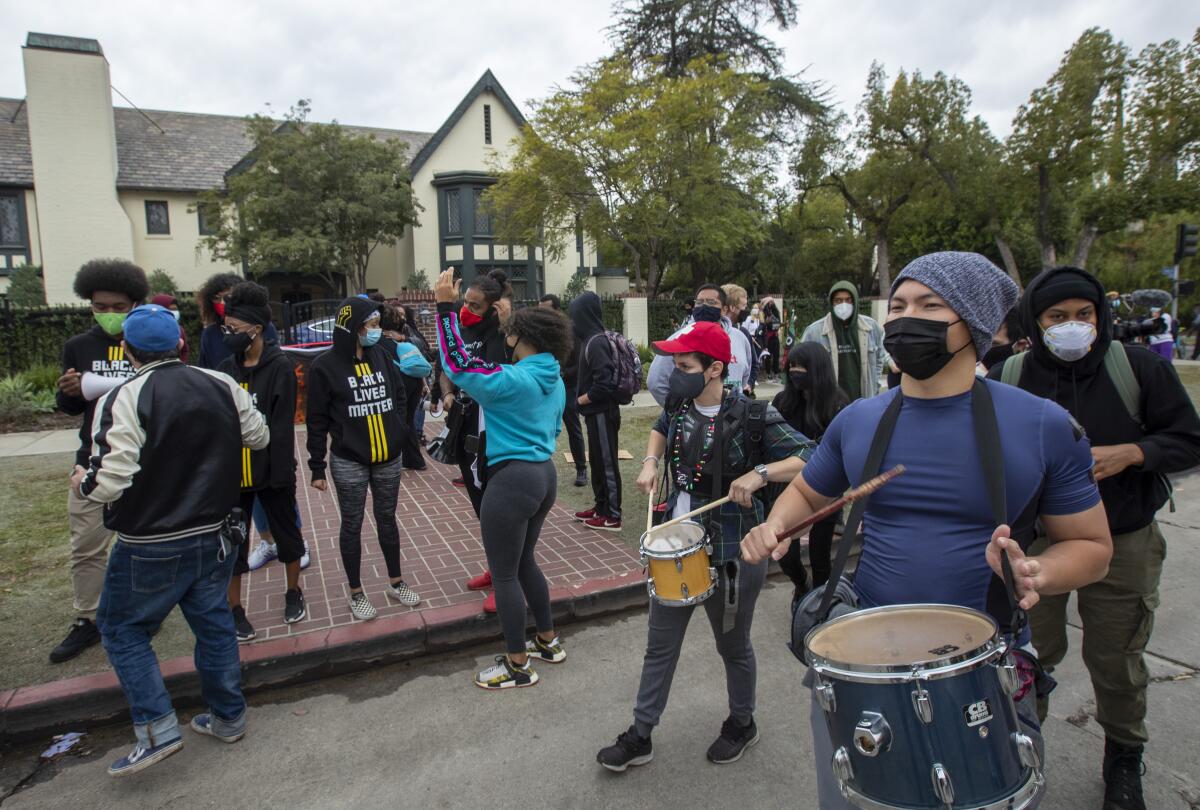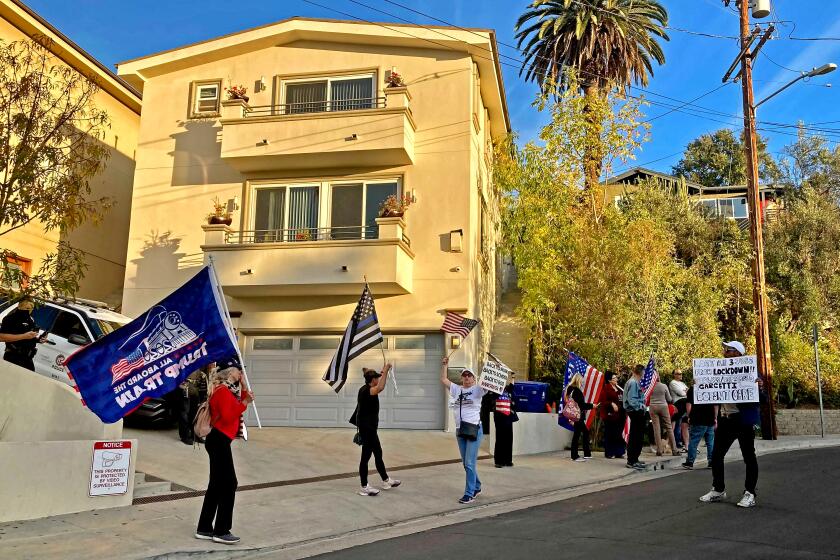L.A. City Council tightens law around protests outside private homes

The Los Angeles City Council voted on Tuesday to crack down on protests outside people’s homes, passing a law that allows those targeted by illegal demonstrations to seek fines from protesters.
The council voted 12 to 2 to pass an ordinance prohibiting picketing within 300 feet of a targeted residential dwelling, replacing a current law that prohibits such picketing within 100 feet.
The ordinance also allows anyone who is “aggrieved” by the unlawful picketing to seek up to $1,000 for each violation. Aggrieved parties could include the target of the protests, as well as neighbors.
The City Council passed the law without discussion. Councilwoman Nithya Raman, whose district includes Silver Lake and Los Feliz, and Councilman Mike Bonin, who represents several Westside communities, voted against the ordinance.
Councilman Joe Buscaino, who is running for mayor, was absent from the vote.
Sari Zureiqat, an attorney with the ACLU of Southern California, said the law will make it harder for protesters to make their messages heard by their intended targets.
“The city is saying, ‘if you want to target someone’s home, you have to be a football field away from either side,’” Zureiqat said. “This could be around the corner or really far away.”
Zureiqat also questioned whether the City Council had adequately explained to the public why the larger buffer distance is needed.
“My first thought is, is this ordinance even necessary?” said Zureiqat.
Protesters on both the left and the right have targeted public officials at their homes in Los Angeles for the last year and a half, demonstrating at all hours to express their grievances over mask mandates, rent forgiveness and other issues.
City Council President Nury Martinez’s car was vandalized at her house by two people earlier this year, and a group of protesters opposed to vaccine mandates demonstrated outside her home last month, shouting into her daughter’s bedroom, according to the councilwoman.
Critics of the City Council who have regularly demonstrated outside members’ residences took aim at the new law at Tuesday’s meeting.
The L.A. City Council voted 13 to 1 to order city attorneys to draft a law that would ban protests within 300 feet of a target’s home.
Ricci Sergienko, an organizer with the activist group People’s City Council, accused Martinez of seeking the law only after anti-vaccination protesters targeted her home. He also accused the council of turning a blind eye to clashes between anti-vaccination protesters and opposing groups.
“All of a sudden, because you’re threatened, you want to pass this law,” Sergienko said.
The city’s new law is modeled after one in San Jose, which that city passed in the 1990s after anti-abortion activists targeted abortion workers at their homes.
It allows aggrieved parties to bring a claim against anyone who has violated, conspired to violate or proposed to violate the picketing law.
Demonstrators may parade through a residential neighborhood as long as they don’t target a particular home.
Political strategist Jasmyne Cannick said Tuesday she has mixed feelings about the new restrictions. Cannick was involved in protests outside the home of West Hollywood resident Ed Buck, who was later convicted of charges that he supplied the drugs that killed two men at his residence.
“If we were not able to protest Ed Buck at his apartment building, I doubt we would have been able to bring the attention needed to [show] what was happening there,” Cannick said.
Weighing in on the proposal Monday, Los Angeles Mayor Eric Garcetti said 1st Amendment rights “aren’t about targeting private citizens’ residential areas.” Asked if he would support the law, Garcetti said he wanted to read it first.
The mayor added that he didn’t understand why protesters target residences when there “is public space ... where you certainly can be heard, where you can make your protest, where you can express your voice,” Garcetti said.
Tuesday’s vote requires a second, procedural vote by the council.
More to Read
Sign up for Essential California
The most important California stories and recommendations in your inbox every morning.
You may occasionally receive promotional content from the Los Angeles Times.












